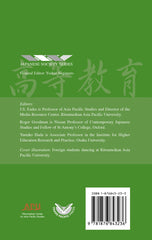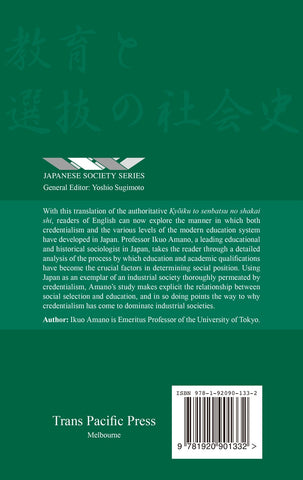The Big Bang' in Japanese Higher Education
Many In Stock
On April 1, 2004, Japanese higher education experienced a 'big bang'-a set of reforms that have been described as the most significant institutional changes for over a century. One of the main aims is to make Japanese universities more competitive internationally, by eliminating the differences between national, public and private schools, and by giving them greater autonomy from the state in day-to-day administration and decision-making. At the same time, these institutions are facing an increasing demographic crisis, as they compete for a declining number of potential students, thanks to the falling Japanese birthrate. This book examines these changes from a variety of perspectives, including those of the government, the teachers and the students. Issues examined include the history of Japanese universities, their relation with the state, university management, internationalization, the struggle to attract students, the problems of language teaching, the impact of information technology, and efforts to upgrade the level of research.
About Editors and Authors
J.S. Eades is Professor of Asia Pacific Studies and Director of the Media Resource Center, Ritsumeikan Asia Pacific University, and Senior Honorary Research Fellow in Anthropology at the University of Kent. He obtained a PhD in social anthropology from Cambridge University in 1975, and his career has seen him hold academic positions in Nigeria, the UK and Japan. His research interests include urban anthropology and sociology, migration and ethnicity and the sociology and anthropology of tourism.
Table of contents
Tables
Figure
Contributors
Japanese Terms and Names
Preface
1 W(h)ither the Japanese University? An Introduction to the 2004 Higher Education Reforms in Japan
2 A History of the Japanese University
3 The Incorporation of National Universities: The Role of Missing Hybrids
4 Higher Education and the Ministry: The Capitalist Developmental State, Strategic Schooling and National Renovationism
5 Government and the National Universities: Ministerial Bureaucrats and Dependent Universities
6 From Selection to Seduction: The Impact of Demographic Change on Private Higher Education in Japan
7 The Japanese Student Perspective on Universities
8 Internationalising Japanese Higher Education: Reforming the System or Repositioning the Product?
9 American Universities in Japan
10 University Entrance in Japan
11 Postgraduate and Professional Training in Japanese Universities: Causes and Directions of Change
12 Reform of the University English Language Teaching Curriculum in Japan: A Case Study
13 The Paradox of the ‘IT Revolution’ and Japanese Higher Education Reform
14 The Japanese 21st Center of Excellence Program: Internationalisation in Action
Index




